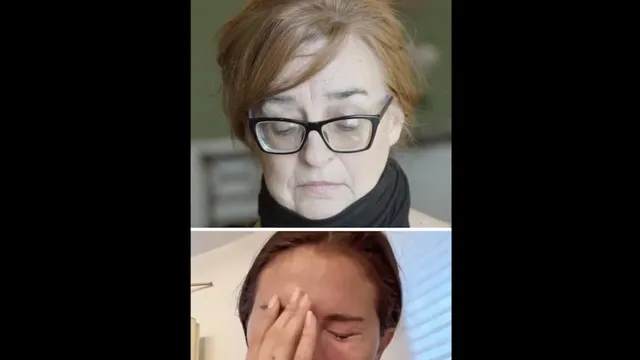
Selena Gomez faces backlash for crying about deportations
2025-02-03 18:20- Selena Gomez expressed her sorrow over deportations in a now-deleted video.
- The White House featured mothers of victims allegedly killed by undocumented immigrants criticizing Gomez.
- The incident highlights the emotional and political divisions surrounding immigration policies in the U.S.
Express your sentiment!
Insights
In January 2025, Selena Gomez released a poignant video on Instagram where she tearfully expressed her helplessness regarding the mass deportations initiated by the Trump administration through ICE raids. Her heartfelt emotional response resonated with many but also drew harsh criticism from supporters of the administration. Shortly after posting, Gomez took down the video due to the backlash she faced, particularly from individuals who accused her of performative activism rather than genuine concern. The White House responded to her video by sharing a counter-argument featuring mothers of victims whose children were allegedly murdered by undocumented immigrants. This video included strong statements from the mothers, such as demanding to know why Gomez was crying for those they felt did not deserve empathy given the impact of illegal immigration on their lives. The video aimed to highlight concerns regarding the human cost of unlawful immigration, positing that Gomez's sadness overlooked the suffering of families who had lost loved ones to violent crime. In addition, the White House's response was publicized through their official account, further fueling the public debate surrounding Gomez's remarks and highlighting the stark divide in opinions about immigration policy in the United States. This incident emphasized how closely immigration issues are tied to emotions and political stances, particularly amidst ongoing discussions about border security under Trump’s presidency. While Gomez's video sought to humanize the plight of undocumented immigrants amid heightened raids by ICE, the countermessaging from the White House illustrated the contrasting narratives shaping contemporary immigration discourse in America. The engagement of public figures and politicians in this heated exchange reflects larger societal divisions regarding the treatment of undocumented immigrants. Critics of Gomez dismissed her crying as insincere due to her status as a celebrity, while proponents of her video argued it was essential to keep humanitarian concerns at the forefront of the national conversation. As debates over immigration continue, the responses to Gomez's emotional appeal are indicative of broader tensions in the country about empathy, safety, and justice in the context of immigration enforcement.
Contexts
The debate surrounding immigration has engaged numerous public figures, spurring diverse opinions that reflect a wide array of perspectives on this complex issue. Politicians, celebrities, business leaders, and activists frequently take to platforms ranging from social media to public speeches to express their views, influencing public opinion and policy formulation. Prominent political figures often emphasize national security and economic considerations, arguing that immigration policies must prioritize the interests of citizens. This perspective is frequently in opposition to those advocating for more inclusive policies, who highlight humanitarian concerns and the economic contributions immigrants make to society. Through these contrasting viewpoints, the immigration debate continues to shape the national agenda and community discussions. In recent years, public figures have leveraged their influence to mobilize support for various immigration reforms. Some celebrities have adopted advocacy roles, using their visibility to amplify issues such as refugee rights and family separation at the border. These individuals bring significant media attention to immigrant experiences, often highlighting personal stories that resonate deeply with the public. Additionally, activists like community organizers and representatives from human rights organizations actively engage in lobbying efforts and public demonstrations, urging lawmakers to consider the human implications of their policies. Their work underscores the notion that immigration is not merely a political issue, but one that directly impacts the lives of millions and requires compassionate responses. The media also plays a crucial role in shaping the immigration narrative, as public figures often depend on journalists to convey their messages to a broader audience. Coverage of immigration debates has evolved, with some outlets striving for balanced reporting while others may exhibit biases that align with specific political ideologies. Notably, how public figures are portrayed in media can significantly affect perceptions of immigrants and immigration policy, particularly during pivotal moments like elections or legislative changes. This interplay between media representation and public opinion underscores the importance of critical consumption of news and information by the general populace to help foster informed discussions about immigration issues. Ultimately, the ongoing discussions led by public figures on immigration illustrate the multifaceted nature of the issue, highlighting not only conflicting ideologies but also shared values among advocates across the spectrum. This consensus often emphasizes the need for reforms that recognize the dignity of all individuals while addressing legitimate concerns regarding security and resource allocation. As the debate continues, it is clear that public figures will remain central to shaping the conversation around immigration policies, contributing to the evolving landscape of immigration debates in society.